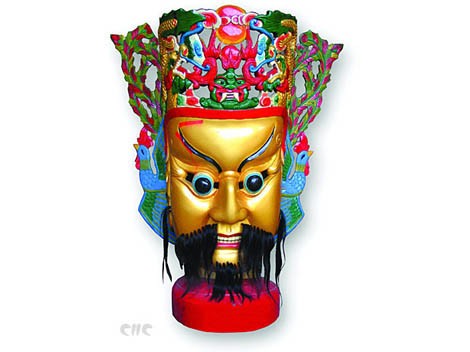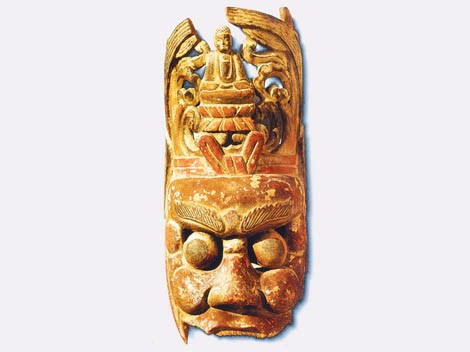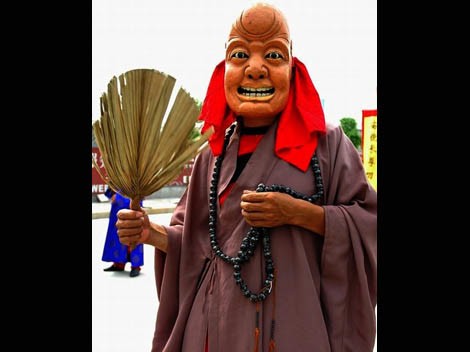The Xiangdong Nuo Mask is a kind of mask made of camphorwood with original religious flavor. It originated in Hunan Province and later became popular in the Xiangdong Region, Piangxiang of Jiangxi Province.

The Nuo Mask, an important part of China's traditional Nuo culture, is usually used in Nuo Ritual, Nuo Dance (Nuowu) and Nuo Opera(Nuoxi). The Xiangdong Nuo Mask is an outstanding traditional folk carving art with a long history.

The Xiangdong Nuo Mask demonstrates handicraftsmen's extraordinary wisdom and skills, conveys their understanding and worship of Nuo. The production process fully displays Chinese ancestors' worship on immortals and their abhorrence of ghosts and pestilences, impressing the modern people with the ancestors' immense power of inviting Gods and getting rid of Ghosts.

The Xiangdong Nuo Mask is usually decorated with paint and colored drawings. It usually takes ancient famous persons as the original shape and pays attention to the deep description of the character of the role. Figures of all Gods are carved vividly in various shapes by handicraftsmen, who, adopting the exaggerated style combined with true-life style, depending on the character requirement of mask, colligating such skills as basso-relievo, lucid carving (Toudiao), round Carving (Yuandiao) and line Carving (Xianke), through the change in the five sense organs and ornaments, can carve various images of muscularity, savage, might and strictness, as well as calmness, solidity, arrogance, duplicity, buffoonery, faithfulness, abnormality, affability, blandness and kindness.
Xiangdong Nuo mask-carving formed two different styles in the Tang (618-907) and Song (960-1279) dynasties. The Tang style is relatively rough, while the Song style is refined. Presently, the Song Dynasty carving style is the main existing carving style of the Xiangdong Nuo Mask, and masks carved with this style are rather primitive and simple in style, and complex and dainty in skill. Today, inheritors of the Xiangdong Nuo Mask are able to carve 440 complete Nuo masks of figures of the Song Dynasty's people, demonstrating the vitality of China's folk art.





